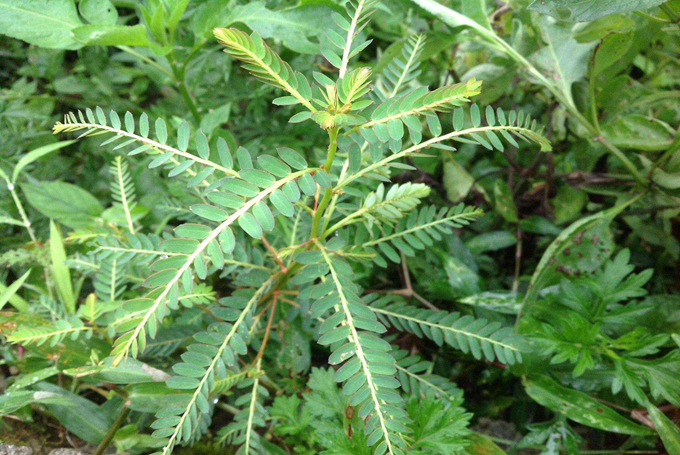Description
🚚 Fastest delivery time: 2-3 days delivery.
🐝 Supplier/Place of Origin: Guangxi, China
🔅 Certification: Non-Organic
🌱 Supplier Introduction: Food Your Health is a distinctive local online grocery shopping platform that works with more than 30 local farms and importers to offer more than 1,500 goods, including fruits and vegetables, meat, seafood, poultry and eggs.
Modern Guangxi and Guangdong were collectively called Lingnan in ancient times, which was the land of the ancient Baiyue. In 214 BC, the Qin army launched a large-scale invasion of Xiou and Luoyue (in present-day Guangxi). After the fall of Qin, Qin general Zhao Tuo established the Nanyue Kingdom in Lingnan. Guangxi is China's largest sugarcane, eucalyptus and sisal planting area, the largest citrus producing area, and the largest silkworm breeding area. Guangxi is rich in tropical fruits such as lychee, longan, mango, banana, citrus, and dragon fruit. Under the combined effects of solar radiation, atmospheric circulation and geographical environment, the climate is warm, with abundant heat, plentiful rainfall, distinct dry and wet seasons, inconspicuous seasonal changes, moderate sunshine, and short winters and long summers.
Important crops in Guangxi include rice, corn and sweet potatoes. Cash crops include sugarcane, peanuts, tobacco and kenaf.
85% of the world's star anise is produced in Guangxi. It is the main ingredient in the antiviral drug oseltamivir (brand name Tamiflu).
Guangxi is also China's longevity town: Bama Yao Autonomous County, which has more than 80 centenarians alive, was listed as the world's fifth longevity town at the 13th International Congress of Natural Medicine in Tokyo in 1991.
Guangxi is also the hometown of lychees in China: Lingshan County. In 1996, Lingshan County was awarded the title of "Hometown of Lychees in China" by the Organizing Committee of the Naming and Promotion Activity of China's Specialty Hometowns.
🛍Product Information:

Prayer-beads (雞骨草) are poisonous and the pods must be removed and the whole plant must be dried for medicinal use. The Chinese name of the medicine is Jigucao, which was first recorded in "Lingnan Herbal Medicine Records". It tastes sweet and bitter, is cool in nature, non-toxic, and enters the heart, lung, liver, stomach, and kidney meridians. Traditional Chinese medicine classifies it as a heat-clearing and detoxifying medicine and a liver-soothing medicine. It should be used with caution by those with weak constitutions. The medicinal materials are mainly produced in Guangdong, Guangxi and other places. It has the effects of clearing away heat and dampness, soothing the liver and relieving pain, promoting blood circulation and dispersing blood stasis. It is mainly used to treat stomachache, rheumatic bone pain, jaundice hepatitis, mastitis, bruises and pain, etc. Modern pharmacological research shows that Prayer-beads has anti-inflammatory, liver-protecting, and immune-promoting effects. It is clinically used in the treatment of ascites due to cirrhosis, acute and chronic hepatitis, cholecystitis, scrofula, exogenous wind-heat, snake bites, etc.
Prayer-beads is a common herbal medicine used by the people in Lingnan, China, and is often used as a soup ingredient and herbal tea.
🥗 Recipe (English Version):
The correct way to eat chicken bone grass
The appropriate serving size of chicken bone grass is 15 to 30g; it needs to be boiled for 30 to 45 minutes.
1. Guangdong Abrus and monk fruit tea
【Ingredients】30g of Guangdong Abrus, 1 monk fruit
[Preparation] Soak the Guangdong Abrus for 10 minutes, wash it, especially the roots. Wash and break the monk fruit for later use. Add 1.5L of water into the pot, add the above ingredients after the water boils, cook for 45 minutes, turn off the heat, and serve at a suitable temperature.
[Effects]
Clears away heat and dampness, moistens the lungs and produces body fluid, soothes the liver and relieves pain.
2. Guangdong Abrus pork bone soup
[Ingredients] 100 grams of Guangdong Abrus, 30 grams of Poria cocos, 200 grams of pork spine, and 3 candied dates.
[Preparation] Wash the Guangdong Abrus first, boil it in water for 20 minutes, and then separate the residue and keep the water. Wash the pork spine and blanch it, put it into the pot with the Poria cocos, add the chicken bone grass water, and then add the candied dates. Cook it over high heat for 20 minutes, then cook over low heat for about 1 hour, and serve when it is warm.
【Effects】
Clears away heat and detoxifies, strengthens the spleen and removes dampness.
Google Recipe 🔍 :

English CookPad 🍳 :

BBC Good Food 🥙 :

🔅 Notes:
Disclaimer
Your Health - We do not provide medical advice
All content in the Health Information provided and shared on this website is for general informational reference only and does not have any legal or medical use and cannot replace the diagnosis and treatment of any professional medical personnel.
The quoted prescriptions and articles are only for the convenience of consumers to purchase the raw materials of auxiliary therapies in one stop, and to provide the original author information for customers to follow for reference.
The content provided by the Company and the above articles (videos, descriptions, links and reviews) is purely personal experience sharing and nothing contained in this content shall be misinterpreted.
Disclaimer: We do not provide online diagnosis and treatment with individuals, the content is general information only, please be sure to consult your doctor for any personal health problems.
Please do not use this content to avoid seeing your own doctor or health care professional or to supersede the advice they give you.














